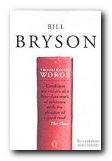a language lover’s guide to intriguing foreign words
This is a book for people who love words – no matter what their origin. In Other Words collects some of the most intriguing and peculiar expressions from countries around the globe for which there are no easy English equivalents. There is an expression in Japanese for instance which describes the particular stress the people there feel when speaking another language. But translated literally, Yokomeshi is ‘a meal eaten sideways’. Yoko means ‘horizontal’ and meshi means ‘boiled rice’. The explanation (and joke) is that Japanese language is normally written vertically. Makes sense now, doesn’t it?
 Entries are listed alphabetically by country, and the languages covered include East and West Europe, Nordic, Middle Eastern, African, Asian, and Creole and Pidgin languages. The entries for each group are prefaced by a short essay outlining examples of contemporary usages and problems.
Entries are listed alphabetically by country, and the languages covered include East and West Europe, Nordic, Middle Eastern, African, Asian, and Creole and Pidgin languages. The entries for each group are prefaced by a short essay outlining examples of contemporary usages and problems.
Examples include explanations of terms which have been commonly taken up in English such as enfant terrible and doppelganger, as well as those special terms for which there is no English equivalent, such as the German Torschlusspanik (literally ‘door-shutting panic’) for which the nearest would be ‘fear of being left on the shelf’, and the Yiddish luftmensch – literally somebody who lives on air, but figuratively a person who sponges off those around him.
Actually, some of the examples he offers disprove his own thesis about translatability. The Italian attaccabottone (literally ‘button attacker’) is exactly as the person who in English ‘buttonholes’ you to relate some long tale of woe.
It doesn’t have the in-depth comprehensiveness of a reference such as The Oxford Dictionary of Foreign Words and Phrases, but it offers much longer and quite amusing explanations.
© Roy Johnson 2005
C.J. Moore, In Other Words, Oxford: Oxford University Press, 2005, pp.127, ISBN: 0192806246

